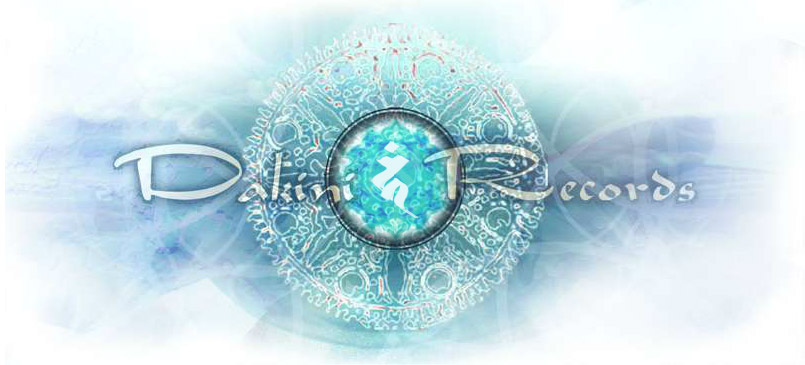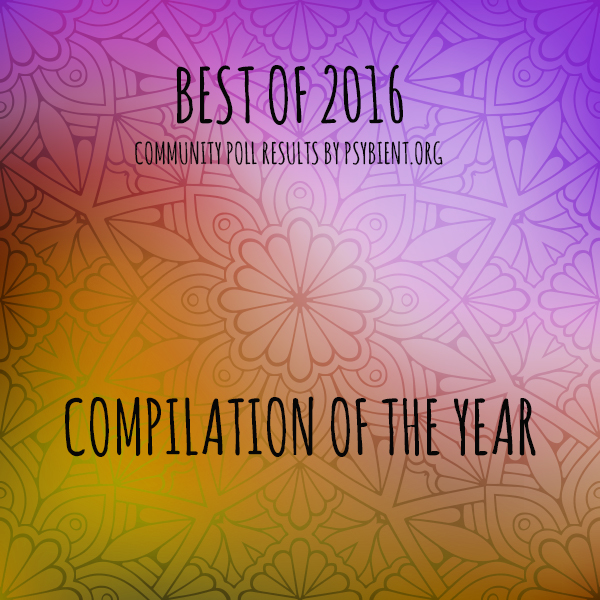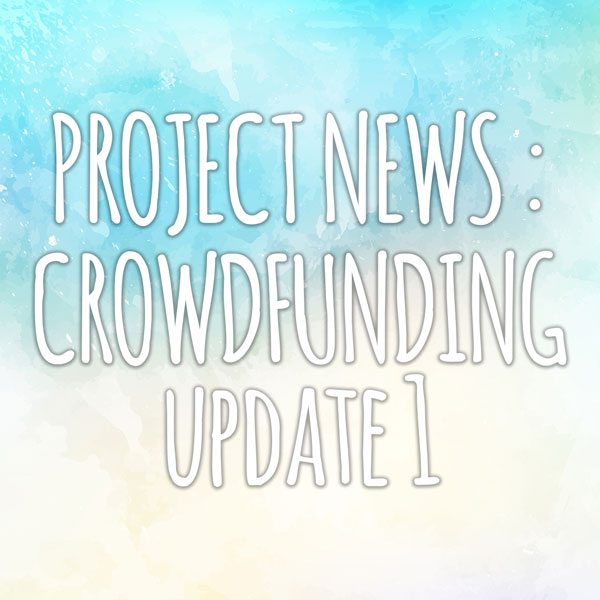MAKYO formed in 1993 with the desire to incorporate Eastern philosophies of sound and spirituality into the whole spectrum of 90s electronica. The result: zen dub, an organic electro-acoustic sound of tablas, ethereal Indian/Arab vocals, and bass. The band’s brief is to ignore the barriers that exist between “live” and “electronic”, “experimental” and “pop”, “east” and “west”, “traditional” and “modern”. GIO who writes all the music, and plays most of it, went through a long musical evolution before arriving in Makyo.
One year ago Gio Makyo had an accident in his studio. After receiving aloud audio signal he has been suffering of tinnitus and hypercarius, since that moment he has been suffering from pain almost 24/7.
Interview is made by Gagarin on 11/11/2015 (sorry for delay in publication)
Hi Gio,
thank you for findng time and energy to talk to us. I understand that you are in very bad condition and it makes us very sad and worry.
We would like to ask you few questions about your injury, new album and Dakini Records.
– When was the first time you start noticing problems related to hearing ? Have you done anything to cure this issue ?
I started getting tinnitus in the 90s. Causes were a very loud feedback blast at a System 7 show when I was standing right in front of the speaker, and I also got hyperacusis (hypersensitivity to sound) from that. Another year I got it from a really bad head cold. Both times it was really scary loud for a couple weeks, but gradually got better; time definitely helped heal it. Usually I would only notice it in a very quiet room. Certainly I had no problem mixing for the past 20 years. I did learn to protect my ears better; for the past six years I always carried professional musician ear plugs with me. I thought I had recovered, and was being careful, and didn’t feel like my ears were in bad shape until that day I had the accident.
In terms of cures, I tried all the stuff people recommend like vitamin B, ginkgo, acupuncture, but I can’t say anything really worked for me, and most of the musicians I know who have tinnitus will say the same thing, there is no cure. You either learn to live with it and it improves over time, or you go crazy. Usually it improves, and by trying not to stress on it and focus on it, your brain learns to ignore it, it turns the volume down naturally. It’s a mysterious process, they still aren’t sure whether it’s more due to injury in your ears, or if it’s some sort of misfiring from your brain.
The older you get, obviously, the harder it is to recover. I do know some musician friends in their 20s who are already talking about tinnitus and all I can say is man, be careful. It always goes away in the morning until that time it doesn’t, and then you’re fucked. Be sensible with the volume, especially in monitors and your headphones, and I would really stay off using headphones on a daily basis, especially little shitty buds with iPods and stuff.
The hyperacusis is worse by far, it’s like stabbing pain in your ears and the side of your head from loud sounds, and even ordinary sounds become too much, like dishes clanking, loud voices, or slamming a door. And going outside, a lot of sounds all at once, is just overwhelming, it leaves you in serious pain. There is no cure for this condition, and they’re not even sure what the cause is yet. Some people with this recover over time, but I’ve heard so many stories of people who end up moving out into a cabin in the woods in complete silence, or killing themselves. It’s really that bad. I had no idea it even existed until I got it.

– What happened in the studio?
I had bought a new iMac, and the mouse it comes with is just shit, really really bad. The entire top surface of the mouse is like a trackball, touch sensitive. The problem is, when you just click on it, it can send the cursor flying _all the way_ to the right or left. Unlike every other mouse in the world, where it is precise and you click on something and that is exactly what you click on, this one can just take off on its own. I first noticed this when working on a spreadsheet, and I just clicked on a column and the mouse went about 200 columns to the right in about two seconds. After that, I noticed sometimes the bass would be turned all the way down in my EQ, and I never remembered doing it. It took me a while to figure out that was also the mouse. That’s when I realized I needed to get a new mouse, but before I did, I was just working on a track, and I clicked on the EQ and it shot all the way to the right instantly, +25 dB of sub bass at 60 dbs in headphones. I ripped off the headphones, and my ears felt stunned, like I’d been punched in the eardrums. The tinnitus started after about 15 minutes, but I thought it would go away, the next day it got worse, and the hyperacusis started as well. I saw doctors right away, and quickly learned they can’t do anything.
– What can you advice to producers and audio engineers to protect themselves from similar issues?
Use a limiter at the final end of your chain between your mixer and your speakers. This should be a hard limiter that will cut any peak that goes above a certain level.. I have another musician friend who has permanent tinnitus that also came from a sudden burst of sound from an iMac; he plugged in a new sound card while he had headphones on, and it just made some incredible fucking huge noise the first time it powered up. Stuff happens, and you never know which time is going to be the one that fucks your ears up. A limiter for protection is a very good idea.
– Most home studio producers connect speakers directly to soundcard. Can you recommend exact pieces of equipement to put in between soundcard and speakers?
(if possible provide a cheap and expensive solutions)
You can run a hardware limiter between your Sound card and speakers. Just run your soundcard outs into the limiter, then the limiter outs into the speakers. If you have a mixer in between, it’s even easier. You should be able to get a cheap limiter used for a couple hundred dollars. But if you are recording through an outboard mixer, investing in something high-end can be a really good move to add some analog warmth to do your overall sound. But be aware that the quality of the limiter could alter the sound you get in your speakers, you want one that does not have much effect on tone, a “transparent” sound. Also the limiter meter should barely be moving when you’re playing back at normal levels; it is there like an emergency break if the sound goes out of control.
– In your case the sound came from headphones, is there any software or hardware that was able to protect you?
If you are working in a software environment like ableton or logic, have a hard limiter setting on your master outputs. What a hard limiter does is squash any sound that goes over a certain level. This can protect you from sudden spikes in sound. Most software that people use for recording will come with limiters included. Remember though that when you render a mixed down, disable the limiter, and make sure your sound is peeking without it. Your mastering engineer will want the track without any overall limiting on it, because that’s what he does.
Dakini has been a very important label for the “ambient / downtempo”, many of us are worrying about it’s future.
– What is the label for you?
Well, I started the label back in 1998 for two reasons.
One, I wanted to create a label for people making the sort of sounds I was into, especially because I didn’t see any other labels releasing that sort of stuff, mixing electronic music with various ethnic music in a psychedelic way. And there were labels I admired so much, like Beyond, 4AD, Factory, Fax, Planet Dog, I wanted to contribute in a similar way, to create a space where new things could happen. Also, there’s a real sense of clarity and space in recordings that I like, and I tried to release music that had that quality.
Two, I had released with other labels, both major and independent, in the past, and I was really disappointed at how bad the deals were for artists. Even independent labels would use contracts with lots of legalese, and a very low royalty rate. Since back in the day when I was a punk, I’ve always believed in the DIY ethic and to treat people fairly. So the idea was to make a label with a straight 50-50 split, where the contract would be clear and the label wouldn’t get paid until the artists did. Basically, that’s kind of rare in the music business, to make a label where the objective is to not screw anyone ;-)
– How do you see future of Dakini Records ? In case you don’t feel better in near future, do you imagine the possibility to convey label to somebody else?
It’s definitely over. I started the label in 1998, and there were three of us working on it then. It’s only been me running it since 2009, and we can’t release albums by any new artists now because the financial pressure (due to ripping, piracy, streaming, etc.) is so bad. It’s hard for every label out there now, and I admire the ones who managed to survive. But even if I had not screwed up my ears, i’m not sure if I would have continued much longer.
I’m not saying this to start an argument, but simply to state a fact: the reason we had to stop releasing music from other artists was that sales collapsed, and that is due to ripping and piracy and streaming. CD sales now are maybe 10% of what they were during our peak, but we still get more income from that than from all digital sources combined. It’s just not sustainable. I plan on quitting anyways, so it doesn’t make any difference to me, but as someone who loves music very much, I wish people could figure it out: support what you like.
– Is there any other record label that has a similar sound as Dakini?
Good question! I don’t know, to be honest. Liquid Sound Design are calling themselves Dakini these days! ;-) Six Degrees was doing a lot of electronic-ethnic crossover stuff for a while, but they’ve since moved in different directions. A lot of the artists who released with us are working independently on their own labels now, like ISHQ, Jairamji, Drumspyder and Adham Shaikh. That’s true of Six Degrees too, people like Niyaz and David Starfire. This is probably how it’s going to be in the future, less labels and more artists having to do everything themselves. Interchill picked up a couple of projects I might’ve done, it’s good to see they’re still going strong.
– Many of us are excited to get a new album from you. This 8th album is available in shops starting november 2015. Tell us what is this album for you? How long have you been working on it and how does it different from your previous works.
7th, unless you count the remix one! A lot of the tracks on it are music composed for a planetarium IMAX-type movie about sacred sites that played here in Japan, it was like you were flying through Angkor Wat, Machu Picchu, and outer space. So it’s very easy to close your eyes and get lost in imaginary journeys with these tracks. I recorded most of it in 2011 and 2012, after I was finished working on Purnima, and kept mixing it a little bit more a little bit more for the next two years. But like always, I record a lot of stuff, but it takes time until the right sequence of tracks appears and says hey, this is the album!
The vibe reminds me a lot of my earlier stuff like Devabandha or Shringara, really chilled Hindi-dub. I think I was using all my up-tempo energy in my Jinniyah project, so the Makyo became just really stoned dub from beginning to end. I’m not really trying to follow any trends or anything, just keep exploring my own little corner of music and do it a bit better each time. I think it’s important to me to have an album that leaves the listener with emotions and the sense of a journey, not just a bunch of cool production and sounds.
– Do you have other releases in preparation?
Yes. I finished two more albums before my accident, one is called The Atmosphere Factory, and it’s all solo electronic stuff, more like Padmasana than Makyo, very inspired by early Tangerine Dream, Terry Riley, stuff like that. It’s kind of like Makyo if you took away the ethnic influences ;-) The B-side was recorded 100% live, and I hope people can see that there is still a very bright future for real live electronic music, not just hitting play on Ableton ;-) This has been mastered, the artwork is in progress, and will be out soon.
I also have a full album as Jinniyah, which is more like heavy tribal bass music. Drumspyder is on a few tracks too. I had been working more in this direction over the past two years, and was really looking forward to doing a lot more in this style, but at least I got one killer album done. This should be out in early 2016, I think it might be my best work since Yakshini.
I also have a lot of live Makyo recordings, and maybe finally the lost Tribal Dub EP which was various tracks from around 2007 to 2009, sessions from an album which never got finished. But unless a miracle happens, that’s it, I don’t think I’ll be recording again.
– When was your last show?
Dj: Harukaze Fest, Yoyogi Park, April 2014.
Live: Jinniyah, Tribal Fest, Sebastopol, California, May 2014.
– Have you ever played in Europe? What kind of event was it?
Boom Fest 2010, ambient stage and sacred fire stage, closing. We had a six-piece group for that and it was fantastic. It’s kind of incredible that’s the only time i’ve ever played in Europe. We were approached by probably five or six major festivals in Europe, but none of them would even cover our airfare, so it never worked out. We mostly just played live in Japan, and I also played now and then on the West Coast (USA/Canada).
– Is there anything else that your listeners and friends can do for you?
Well, to be honest, because of this injury, I can’t make music, but I’ve also had to stop my day job. I can barely even go outside in Tokyo because loud sounds hurt my ears so much. Obviously, supporting my music really helps, and turning your friends onto it is also a good thing. If anyone has gone through similar problems and come out the other side successfully, I’d love to hear how you did it. I’d also like to thank everyone who sent so many messages of support and the people who told me how much my music means to them. Not being able to make music right now is the worst thing in the world, and these messages at least make me feel happy for what I did manage to accomplish. That’s why we make art, to leave behind something beautiful.
— Thank you for your time ….. if you wish to transmit a message to our readers please do it. As a concussion of your conversation, would you like to say something to us ?
Thanks!
Links:
Makyo Discography => http://www.discogs.com/artist/570-Makyo
Dakini Records www.dakinirecords.com
Dakini Records – Bandcamp https://makyo.bandcamp.com/

![Interview with Makyo [Dakini Records]](https://www.psybient.org/love/wp-content/uploads/Makyo-Interview.jpg)




